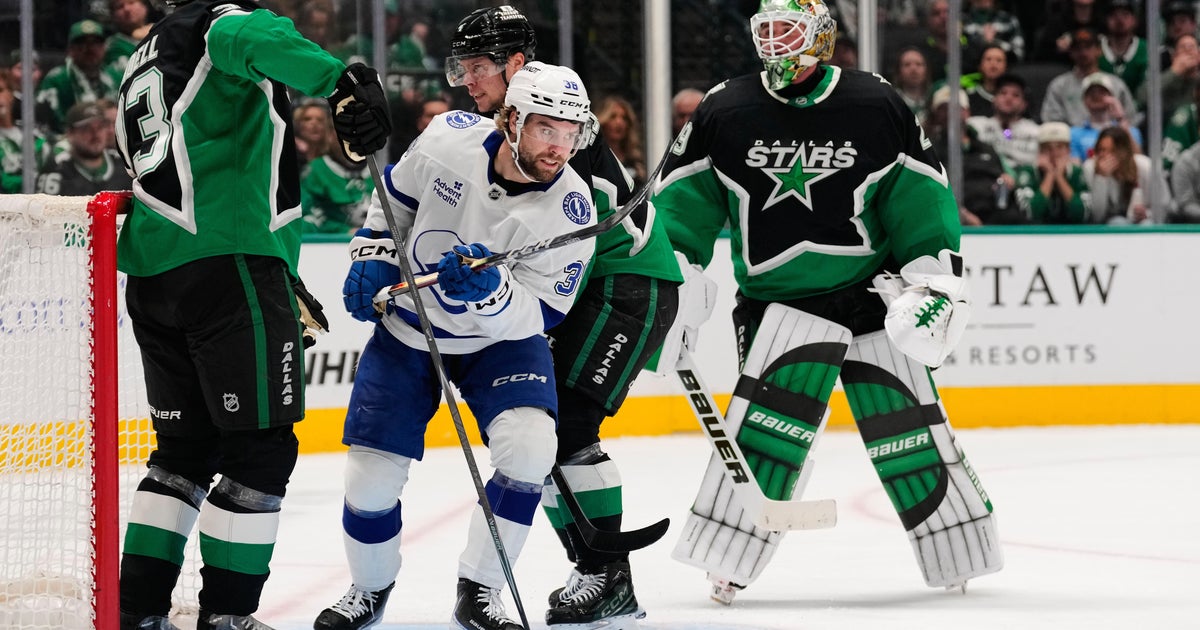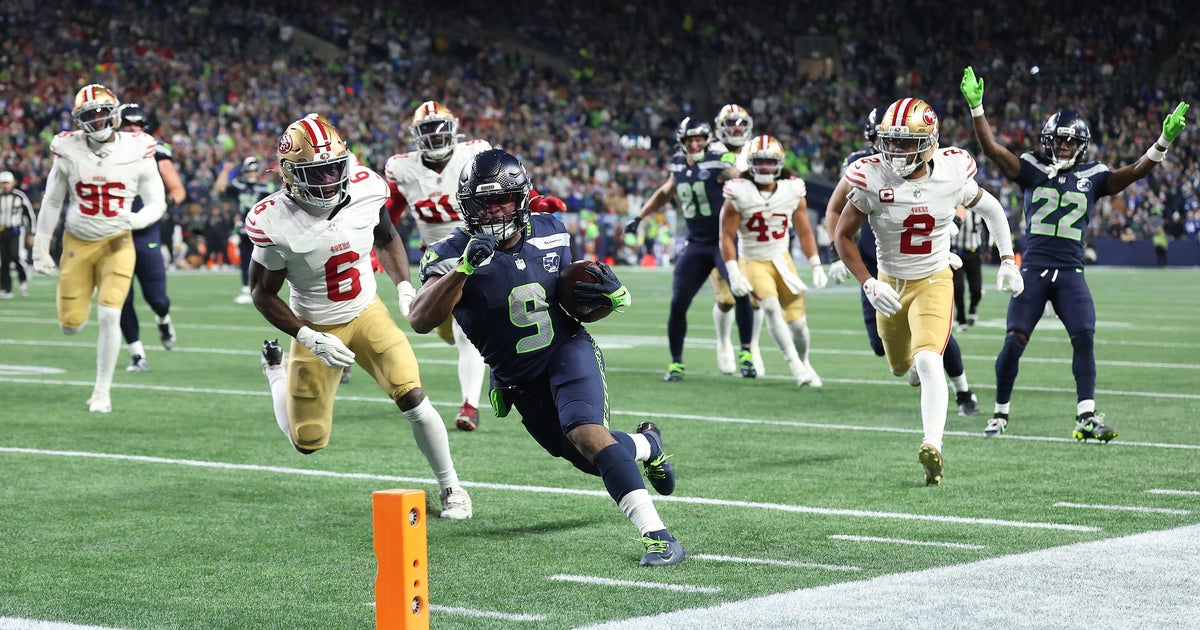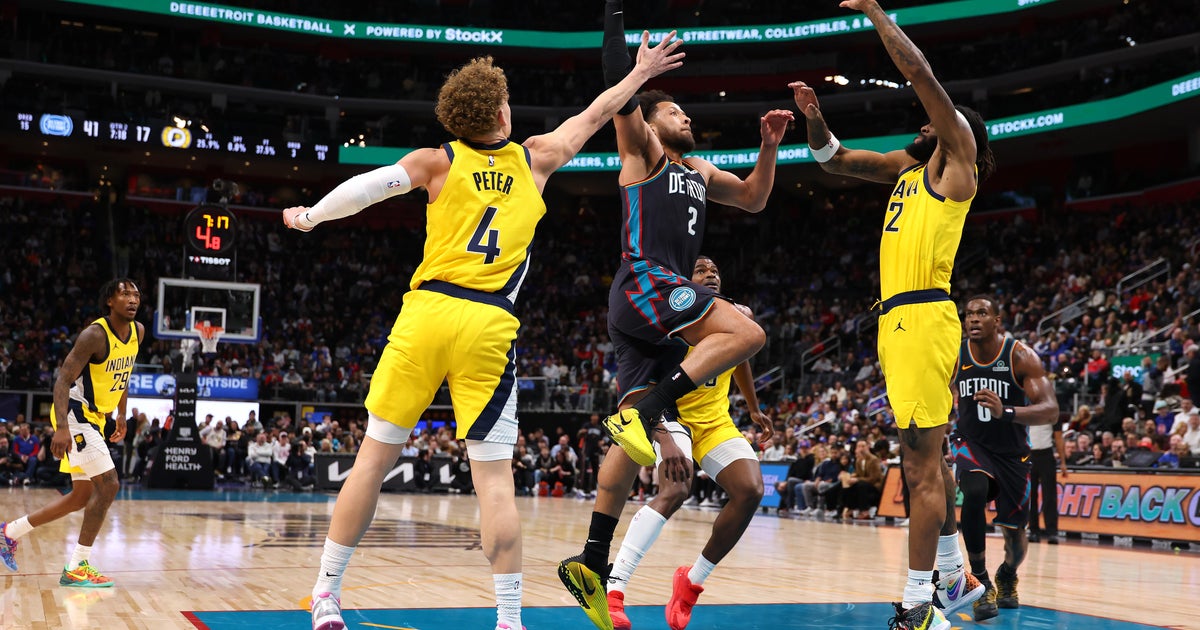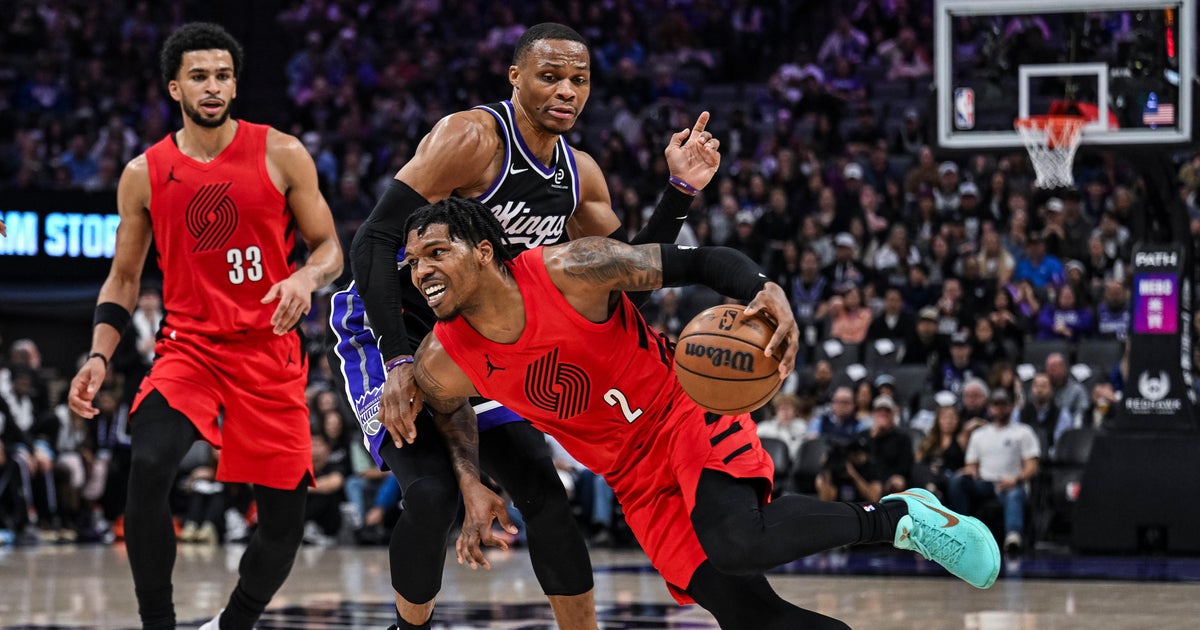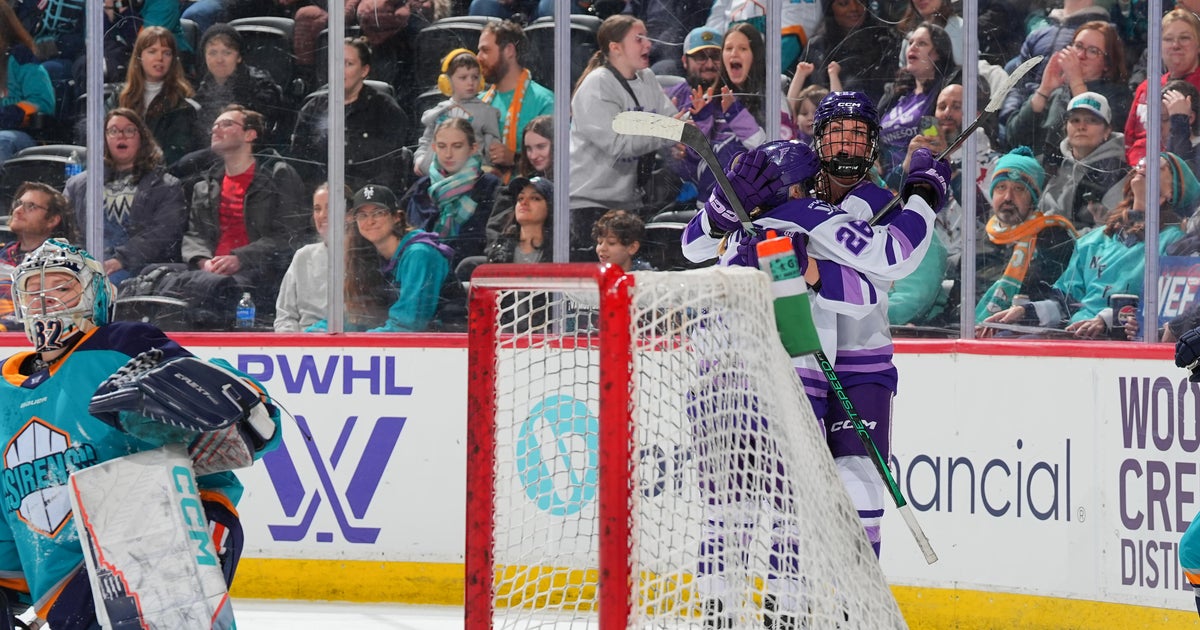US Open '19: Shaky Start To No. 1 Osaka's Title Defense
NEW YORK (CBSNewYork/AP) — Naomi Osaka put her right hand in the shape of a gun and pointed two fingers at her temple, her face grim, while she looked toward her guest box.
She'd just dropped the second set, moments after wasting a match point, as her U.S. Open title defense got off to a shaky start Tuesday. Her body language told the story: the eye rolls, the balled up fists covering her face at a changeover, the racket resting atop her head.
Back in Arthur Ashe Stadium, where she beat Serena Williams in last year's chaotic final, the No. 1-seeded Osaka kept digging holes and kept climbing out of them, eventually emerging with a 6-4, 6-7 (5), 6-2 victory over 84th-ranked Anna Blinkova of Russia in the first round.
"I don't think I've ever been this nervous in my life," Osaka told the crowd during her post-match interview. "For me, I just came off really slow and I never really found my rhythm."
The 21-year-old from Japan wore a black sleeve over her left knee, which has been an issue recently.
But it wasn't so much her movement as her erratic strokes that presented problems for Osaka, who finished with 50 unforced errors, more than double Blinkova's total of 22.
"You kind of want to do well after you did well last year," Osaka said, when asked why she felt so many jitters while trailing 3-0 and 4-1 at the outset.
"Just definitely," she said, "didn't want to lose in the first round."
Osaka avoided that sort of disappointment. Stefanos Tsitsipas, a 21-year-old from Greece who was seeded No. 8, did not. He lost in the first round for the second Slam in a row — and made a lot of noise on his way out, saying during a late dispute with chair umpire Damien Dumusois: "You're all weirdos."
After getting broken to trail 4-3 in the last set of his 6-4, 6-7 (5), 7-6 (7), 7-5 loss to Andrey Rublev, Tsitsipas was fiddling around with a plastic bag of sweat bands and head wraps at a changeover when Dumusois announced it was time for play to resume.
Tsitsipas said he wasn't ready; Dumusois, essentially, told him that was too bad. Tsitsipas told the official, who already had warned him about getting coaching help, to go ahead and call him for a violation; Dumusois obliged, docking a point.
"This chair umpire, I don't know, he has something against me. I don't know why," said Tsitsipas, who upset Roger Federer en route to the Australian Open semifinals in January but bowed out of Wimbledon in the first round.
No. 4 seed Dominic Thiem, the two-time French Open runner-up, was also a first-round loser for the second straight major tournament when he was beaten 6-4, 3-6, 6-3, 6-2 by Thomas Fabbiano — the player who beat Tsitsipas at Wimbledon.
Another highly seeded man went out when No. 10 Roberto Bautista Agut, a Wimbledon semifinalist, was defeated by Mikhail Kukushkin 3-6, 6-1, 6-4, 3-6, 6-3, while No. 14 John Isner and 2014 champion Marin Cilic each won in straight sets. No. 2 Rafael Nadal was in a later match.
In other women's results on Day 2, two-time major champion Garbine Muguruza was eliminated by Alison Riske of the U.S. 2-6, 6-1, 6-3, while two-time Wimbledon winner Petra Kvitova and No. 13 seed Belinda Bencic both won in two sets.
During the professional era, which began in 1968, only two U.S. Open women's champions have lost in the first round the following year: It happened in 2005 to Svetlana Kuznetsova and again in 2017 to Angelique Kerber — who was beaten by none other than Osaka, ranked 45th at the time and yet to get past the third round at a major tournament.
Osaka thought back to that match Tuesday.
"I could kind of see how stressed out (Kerber) was and that was in my favor," Osaka said. "I don't want to give people that look."
This victory, difficult as it was, stretched Osaka's winning streak in hard-court Grand Slam matches to 15, which includes her run to the titles at Flushing Meadows in 2018 and at the Australian Open in January.
Those helped her become the first Japanese tennis player to be ranked No. 1, a spot she regained this month.
Osaka has spoken rather openly about the struggles she's had dealing with pressure and expectations this season. She said Tuesday that she hoped figuring out how to get past Blinkova — who is now 0-2 at the U.S. Open and 0-4 against top-10 opponents — would boost her moving forward.
"It helps me a lot, because I learn from the tougher matches," Osaka said. "It helps me be prepared and try to learn and adjust my game plan."
(© Copyright 2019 CBS Broadcasting Inc. All Rights Reserved. The Associated Press contributed to this report.)

